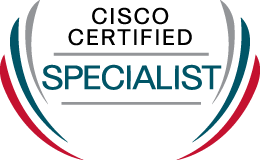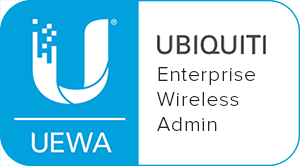PBX (Private Branch Exchange) FAQs
This resource aims to answer all the common questions about a PBX. What it is, how it works, what it can do, key differences between a hosted VoIP PBX and a traditional PBX, features available and more. Click on a link in the index to see the answers available to a specific question.
- What is a PBX?
- How does a PBX work?
- What is a hosted or cloud PBX?
- How does a hosted PBX work?
- Main differences between a hosted PBX and a traditional PBX?
- What are the benefits of a hosted PBX?
- What features are available with a hosted PBX?
- What type of businesses can benefit from a hosted PBX?
- Are there any downfalls associated with a hosted PBX?
- How much does a hosted PBX cost?
- What are installation fees for hosted or cloud-based PBX services?
- Do I need hardware, or can I use a softphone with a hosted PBX?
- Can cell phones be used on a hosted PBX?
- Are there any special requirements associated with a hosted PBX?
- What if I need to add additional lines?
- Can I still send and receive faxes through a hosted PBX service?
- What happens in the case of a power outage?
- What type of onsite equipment do I need for a PBX?
- What are PSTN calls?
- Can I use my existing phone number?
- What if I have multiple business locations?
- Is a hosted PBX difficult to manage?
- Can I make international calls from my hosted PBX?
- What is an auto attendant?
- What is call routing?
- What is VoIP?
What is a PBX?
PBX is the abbreviation of Private Branch Exchange. It’s a phone system that is used to make internal calls (employee to employee) as well as external calls (employee to outside callers). A Private Branch Exchange typically includes voicemail, call transfers and auto attendants, which replaced telephone switch attendants or operators. PBX’s provide a much more efficient way to make call connections and handle increased call volume.

Modern PBX Solutions Extend Beyond The Office
Today, Private Branch Exchange services are commonplace over traditional switchboards. The latest and most advanced version of this exchange based phone system utilizes the Internet. Hosted, or cloud based Private Branch Exchanges are efficient for phone call management.
How does a PBX work?
A traditional PBX setup consists of on premise hardware, such as a cabinet. It allows phone users within an organization to make internal and external calls. To make external calls, it uses phone lines that connect employees with a Public Switch Telephony Network (PSTN).
Today, organizations are using cloud based or hosted Private Branch Exchanges. These often require an Internet connection with adequate bandwidth or setup of MPLS to prioritize voice traffic. The basic function of a cloud hosted Private Branch Exchange, is the same as a traditional on-premise setup. A major difference is an external phone or voice service provider will “host” and manage the exchange for end users. Cloud or hosted PBX’s are commonly located in data centers. Instead of routing calls through on-premise hardware, voice data is sent using the Internet to the hosted or cloud Private Branch Exchange.
What is a hosted PBX?
A hosted Private Branch Exchange, also called ‘cloud based’, is a private telephone service that enables organizations to make internal and external calls and connections via the Internet. A hosted or cloud solution offers access to a variety of different calling and communication features. Some of these features may include;
- Call routing
- Online call and phone management
- Auto attendants
- Call forwarding and parking
- Call to e-mail or text transcriptions
- Call groups and conference calling
- Call intercept
- CRM integration
- Hunt groups
- Soft phones for click to dial
- Mobile app integrations
- Remote presence….and many more
The aim of modern features associated with a cloud or hosted phone system, is to create a streamlined and efficient phone service. This applies to users both internal and external users of the phone system. A hosted exchange is managed and maintained by a voice or Internet Service Provider.
How does a hosted PBX work?
Like a traditional setup, a hosted phone system connects callers and phone numbers internally and externally. Instead of connections occurring over phone lines, they are made via the Internet and IP based phones with a hosted system.
A cloud or hosted system eliminates the need for expensive and bulky on-site hardware. Management, servicing, maintenance and updates are included by the service provider, which ‘hosts’ the system offsite. Unlike traditional on-premise PBX services, a hosted phone system allows users to accept and make calls from a variety of devices. If a user’s device is connected to the internet and has the required application or software, a user can ‘mimic’ or maintain their office phone system presence from anywhere.
What are the main differences between a hosted PBX and a traditional one?
The major differences are;
- A hosted or cloud setup operates utilizing Internet service.
- No onsite hardware requirements for hosted or cloud based PBX’s.
- A hosted or cloud Private Branch Exchange requires compatible IP phones or devices, such as soft phones or mobile apps.
Due to the above, a cloud or hosted phone system can provide significant cost savings, due to a variety of factors including;
- No large initial costs to purchase and physical phone hardware or equipment.
- No need for an on-site installation.
- Less space requirements – no room needed to house physical hardware.
- No specialist management or on-site technicians for phone system maintenance.
- Often free calls due to the use of the Internet to make connections.
What are the benefits of going hosted over a traditional setup?
Tasks such as scaling phone service or adding new users is simple. This makes a hosted system ideal for businesses who anticipate growth or large seasonable fluctuations in phone users. Going hosted provides a cost-effective, feature-rich business phone solution. More reasons how this type of system provides benefit;
- A hosted business phone system negates the need for costly on-site equipment.
- No lengthy installation, management or maintenance time required by staff.
- IT or technical personnel can focus on larger projects, instead of maintaining or troubleshooting a phone system.
- Online portals and free phone apps make it easy to customize and access phone service from any Internet connected device.
- Many cloud-based systems offer extensive features that can improve business communications. A hosted PBX can make communications easy and efficient.
- Access to enterprise level calling features, can be at more affordable costs than traditional services.
- A hosted service ensures redundancy. Multiple servers can provide phone service in the case of an emergency. This minimizes the risk of relying on a single piece of hardware or equipment.
What features are available with a hosted PBX?
Most hosted or cloud-based services provide users with basic, custom or even advanced features with phone service. Some features are included with basic service fees for each user, ‘seat’ or phone line. Other features are not. Extra costs can be added to base phone service pricing for add-on features and functions.
What type of businesses can benefit from a hosted PBX?
A hosted PBX offers businesses of all sizes a flexible, reliable, and feature-rich business phone solution. Whether a startup looking for a business phone service that can grow and adapt to changing needs, or a Fortune 500 company looking to service a call center or large sales department, a hosted PBX can meet requirements.
Are there any downfalls associated with a hosted PBX?
For many organizations, a hosted PBX is an excellent solution to business phone service needs. However, there are some potential downfalls that are associated with this internet-based service. Businesses that have a poor internet connection or frequent internet outages may experience outages or service or voice quality degradation. It is important to consider current internet capabilities before making a switch.
How much does a hosted PBX cost?
Hosted PBX services are typically more affordable then traditional PBXs. The exact cost varies based on the provider. Costs are often applied on a per user, line or ‘seat’ basis. Additional fees may be applied for setup, support or extra features such voicemail, CRM integration, auto attendants, etc.
Are there any installation fees with a hosted or cloud-based PBX service?
Each voice provider is different. The best way to determine install or setup fees is to contact a provider directly. Also check whether a provider offers an assisted install (installation instructions are shared with you) or in person setup at your office or business (a tech comes to you. This is a nice to have if you will be using phone hardware which requires connecting). As an example, Fastmetrics charges $0 for voice service setup and install, in person or assisted, as well as free training in using your phone system.
Do I need hardware, or can I use a softphone with a hosted PBX?
Many hosted PBX services allow for the use of hardware (an IP phone for example) or a soft phone. A soft phone such as Bria for the iPhone or X-Lite 5 for desktops is software that provides a phone interface. Once configured, users can make / receive phone calls using a keyboard, mouse, or cell touch pad.
Can cell phones be used on a hosted PBX?
Yes – cell phones are compatible with this type of phone system. Many hosted or cloud PBX’s allow users to access their business phone system anytime, anywhere.
Many providers offer free smartphone apps allowing a user to make / receive calls from a mobile device, even when away from their desk or office. These apps allow phone service users to maintain business call presence anywhere. This feature is popular with large mobile or remote work forces. Or, for users who frequently travel.
More recent unified communications inclusions for hosted phone service providers is integrated video chat via mobile or desktop. This allows video conferences using mobile apps.
Are there any special requirements associated with a hosted PBX?
For a hosted or cloud-based PBX service, or VoIP to function well, a reliable Internet service connection and appropriate IP compatible phones are required. Bandwidth requirements vary based on a variety of factors. These include the number of users and other requirements. You can contact Fastmetrics for help to determine your bandwidth needs for IP based voice solutions.
What if I need to add additional phone lines?
A cloud hosted PBX allows for the instant addition (or removal) of phone users as needed. As business requirements change, via the use of an online management system.
Can I still send and receive faxes through a hosted phone service?
With a hosted or cloud-based PBX, sending or receiving a fax is simple. This can take place via a traditional fax machine or online. A hosted PBX service allows for seamless integration across your organizational network, so faxes can quickly be stored or saved.
What happens in the case of a power outage?
For traditional PBX’s, a localized power outage can interrupt communications until power is restored. However with a cloud or hosted phone system, as long as a device is connected to the Internet, voice calls can be made and received.
What type of onsite equipment do I need for a PBX?
One of the reasons so many businesses choose to go with a hosted service is because of the limited equipment requirements, compared to a traditional system. A standard PBX requires a significant amount of on-premise equipment. A cloud or hosted solution requires handsets or devices and a reliable Internet service connection.
What are PSTN calls?
The Public Switched Telephony Network (PSTN) is the network of landline telephones that provides analog connections (basically, the traditional telephone system). For a significant period, the switched telephony network was the only system available for phone calls. However, modern technology and the Internet has paved the way for alternatives. This includes mobile apps and Voice over Internet Protocol (VoIP).
As mobile and IP based phone solutions like VoIP increase in popularity and affordability, more businesses are choosing to use cloud or hosted solutions for phone service. However, they still need access to the PSTN. This calling functionality connects a hosted PBX user with the external telephony network.
Can I use my existing phone number?
Should you decide to migrate your phone service to a hosted PBX, you can keep your existing phone numbers in most instances. Most phone service providers offer seamless porting of phone numbers to their managed voice network.
What if I have multiple business locations?
Hosted phone systems are often cloud-based. It is not on-premise hardware. It can meet the communication needs of multiple business locations. Virtual offices, local or international offices with different phone numbers can be efficiently setup. It’s efficient to create a unified experience for employees and customers, regardless of how many locations your business has.
Is a hosted PBX difficult to manage?
As on off-premise service, management of a hosted Private Branch Exchange largely falls on the service provider. This negates the need for lengthy training of in-house IT staff. Hosted phone system providers do the work. They are responsible for ensuring a functional phone system. Additional customization or user management needs can typically be met via an online portal by end users. Online portals provide users with easy and intuitive access to their phone own system. Here is a video demo of an online user portal.
Can I make international calls from my hosted PBX?
Yes. In today’s global economy, international calling capabilities are a must. A cloud or hosted PBX provides this service. Businesses making many international calls may find a hosted or cloud based phone service reduces international call bills considerably.
It is very standard today for most Private Branch Exchange service providers to offer free local phone calls. This is often accompanied with have competitive pricing on long distance calls. Rates as low as $0.02 per min for calls to Asia, $0.01 per mute for calls to Europe and $0.03 per minute to South America are common.
What is an auto attendant?
For companies with multiple departments, or those that don’t have a receptionist on staff, an auto attendant helps direct and transfer calls to the appropriate departments or individuals. This makes it easy to properly funnel calls, creating a smoother experience for both customers and employees. When you call somewhere and you are given automatic options to “press 1 for…, press 2 for…, press 3 for…’ that’s an auto attendant.
What is call routing?
Call routing systems, also known as Automatic Call Distributors (ACD), allow businesses to route traffic based on a variety of different qualifiers. These qualifiers can include;
- Time of day
- Current call volume
- Requested department
- Preferred language of the caller
When utilizing call routing through a hosted Private Branch Exchange, businesses can take control and channel calls. Variables like employee departments, business hours and network strain during hours of high call volume can be factored in.
What is VoIP?
VoIP stands for Voice over Internet Protocol. It is a phone service that operates over the Internet, as opposed to traditional phone lines. VoIP is common today via services such as Skype. Also apps like Face-time or Whats App calling.
For business phone service, many companies choose VoIP due to cost savings. Like with a hosted Private Branch Exchange, calls over the Internet can be made for free. (Unlike traditional phone lines with a pay per call structure). VoIP service can also offer enterprise-level functionality, without the cost of traditional phone services.
About Fastmetrics, Inc. Building & Business ISP
Since 2002, Fastmetrics is the Bay Area’s only dedicated business ISP. We provide telecommunication services in California and the San Francisco Bay Area. Reliable service – backed by better live and local support. From install to 24-7 proactive monitoring, get treated like a VIP customer. Not a number by a faceless call center. We specialize in managed business internet and phones, dedicated high speed business fiber internet, business WiFi, SIP voice solutions / UCaaS and managed network services. We are a Microsoft and Cisco Meraki Partner. Our team are Certified Cisco Specialists, Ubiquiti Enterprise Wireless Accredited and Polycom Authorized Solution Advisors. We take care of your business network, so you can focus on growth.








